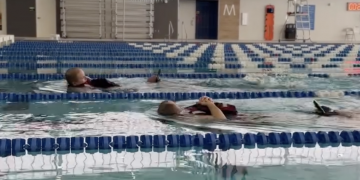Bloomington, Indiana – Waste management professionals in the community are advising residents to pay closer attention to the materials they recycle in order to reduce the risk of contamination.
When loads of recyclable material and loads of non-recyclable material are mixed together, contamination occurs. Ben Pearson, the general manager of Republic Services for Bloomington and western Indiana, stated that when anything like this occurs, the entire cargo needs to be thrown away and taken to landfills.
According to Pearson, products such as pizza boxes, Styrofoam, plastic bags, and electrical devices are among the most often recycled materials that are done so inappropriately.
According to Pearson, the items that are in closed bags cannot be recycled since the sorting line at the recycling center moves too quickly for staff to open and unbag them. Thus, these items cannot be recycled.
According to Pearson, materials that are soiled or dirty cannot be recycled. Likewise, items that are damp cannot be recycled. Jars of mayonnaise and peanut butter as well as greasy cartons are common sources of contamination for full loads of recyclables. Recycling Simple is a website owned and operated by Republic Services that provides further information about how recycling ought to be done.
Yash Jain, a resident of Bloomington, stated that he frequently comes across improper recycling practices throughout the city. He stated that he frequently observes pizza boxes and other food waste being discarded in an improper manner.
According to Jain, Bloomington would benefit from increased recycling containers as well as initiatives to make recycling less confusing.
“For example, some places may have recyclable coffee cups, other places may not, and sometimes they won’t have a bin, which makes it confusing,” Jain said.
Felix Martinez, vice president of the Teamsters trash division, stated in an email that improper recycling can also create problems for workers who are responsible for sorting waste in facilities that are managed by waste management companies.
According to Martinez, the use of plastic bags poses a significant risk of injury to workers because of the potential for workers to become entangled in the bags and disrupt production on the line.
In addition to that, he mentioned that chemical containers and batteries posed dangers to the employees. Batteries and other potentially hazardous products can be disposed of at one of the several hazardous waste disposal centers that the City of Bloomington maintains.
According to Rhea Carter, who is the director of sanitation for the City of Bloomington, one of the ways to quantify the impact of improper recycling is by looking at diversion rates. Diversion rates refer to the percentage of waste that is not delivered to landfills. The years 2018 through 2022 saw a diversion rate of thirty percent in Bloomington. In comparison, the national average was determined to be 32.1% in 2018 by the Environmental Protection Agency.
Carter stated that if the contamination produced by improper recycling does not reduce, suppliers who purchase recycled material to build new items will not take Bloomington’s waste. This is because the contamination is caused by inappropriate recycling.
“For your future, these kids need to understand how important recycling is and how important doing it right is,” Carter said.




















































































